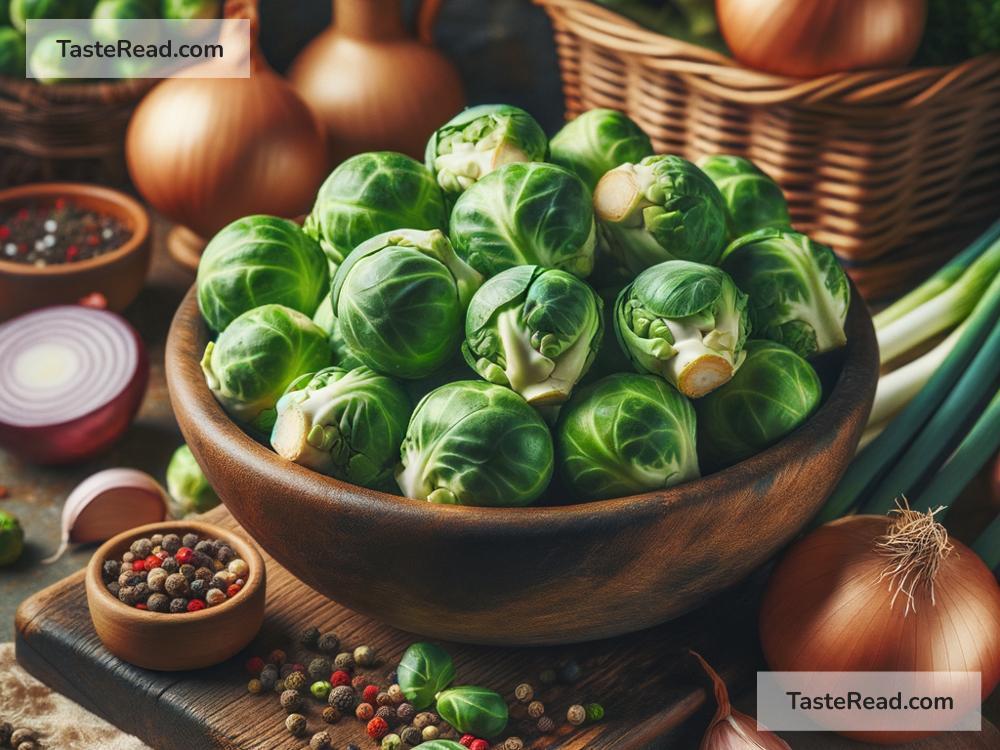What Gives Brussels Sprouts Their Sulfurous Taste?
Brussels sprouts often stir up strong opinions. Some people love their slightly bitter, nutty flavor, while others wrinkle their noses and avoid them at all costs. One of the reasons people might dislike Brussels sprouts stems from their sulfurous taste and smell—a hallmark of this unique vegetable. But what exactly causes this distinct taste? Let’s break it down into simple terms.
Brussels Sprouts: Part of the Cabbage Family
First, it’s important to know that Brussels sprouts belong to the cruciferous vegetable family. They’re closely related to broccoli, cauliflower, kale, and cabbage. If you’ve ever noticed that some of these vegetables have a similar smell or taste when cooked, it’s not a coincidence! They all contain particular chemical compounds that produce sulfur-like flavors.
Sulfur Compounds and Their Role
The sulfurous taste in Brussels sprouts comes from natural substances called glucosinolates. Glucosinolates are sulfur-based compounds found in many cruciferous vegetables. While they might seem unpleasant to some, these compounds are actually part of the plant’s natural defense system. They help protect the plant from pests and diseases.
When you chop, chew, or cook Brussels sprouts, an interesting chemical reaction takes place. Glucosinolates break down into smaller compounds called isothiocyanates and sulfur-containing molecules. These are responsible for the strong smell and taste that many people associate with Brussels sprouts.
A Closer Look at the Culprits
There are a few specific compounds you can thank (or blame) for Brussels sprouts’ distinct flavor:
-
Sinigrin: This glucosinolate is especially abundant in Brussels sprouts. When sinigrin breaks down, it forms allyl isothiocyanate, a compound that creates a mustard-like, sharp flavor. It’s one of the reasons Brussels sprouts can taste a little bitter and pungent.
-
Dimethyl trisulfide and dimethyl sulfide: These sulfur compounds are released during cooking and are responsible for the notorious “cabbage smell.” If Brussels sprouts are overcooked, the smell intensifies, and the taste can become overwhelming for some people.
-
Hydrogen sulfide: As Brussels sprouts cook, enzymes break down their glucosinolates and release small amounts of hydrogen sulfide gas. This gas contributes to the sulfurous aroma that some people dislike.
Cooking Techniques Matter
Interestingly, the way you prepare Brussels sprouts can change how much of the sulfur compounds get released—and therefore how strong they taste and smell. If you’ve ever avoided Brussels sprouts because they tasted bitter or smelled bad, there’s hope! Smart cooking methods can minimize these compounds and make Brussels sprouts much more appealing.
Here are some tips to reduce the sulfurous taste:
-
Don’t overcook them: Overcooking Brussels sprouts is a common mistake that releases more sulfur compounds and intensifies the bitter taste. Instead, try cooking them briefly until they’re tender but still slightly crisp.
-
Roast them: Roasting Brussels sprouts brings out their natural sweetness and reduces the presence of sulfur compounds. Toss them with some olive oil, salt, and a little seasoning, then roast until they’re caramelized and golden brown.
-
Add acid: Pairing Brussels sprouts with acidic ingredients like lemon juice or balsamic vinegar can help balance their bitter and sulfurous flavors. The acidity mellows out the sharpness and enhances their overall taste.
-
Use seasoning and spices: Adding garlic, bacon bits, cheese, or herbs like rosemary and thyme can transform the flavor of Brussels sprouts. These ingredients can mask any strong sulfur taste and make Brussels sprouts much more enjoyable.
-
Try steaming: Steaming Brussels sprouts for a short time can preserve their nutrients while keeping the sulfur smell from becoming too overwhelming. You can then sauté them with flavorful ingredients for added taste.
Are Sulfur Compounds Good or Bad for Our Health?
Even if you’re not a fan of the sulfurous taste, the compounds in Brussels sprouts have some surprising health benefits. Glucosinolates and isothiocyanates are known for their cancer-fighting properties. Studies suggest that these compounds may help protect against certain types of cancer by reducing inflammation and supporting detoxification pathways in the body.
Brussels sprouts are also packed with nutrients like vitamins C, K, and fiber, which contribute to overall health. Their bitter and sulfurous taste may not be for everyone, but their nutritional benefits make them worth trying in different recipes.
A Vegetable Worth Exploring
Brussels sprouts aren’t just a vegetable on your plate—they’re a miniature chemistry experiment. The sulfur compounds responsible for their taste and smell add complexity to their flavor while offering health benefits. Whether you love or dislike them, it’s fascinating to learn how chemical reactions in food can affect our taste buds.
If you’ve been avoiding Brussels sprouts, it might be time to experiment with new cooking techniques and recipes. Who knows? With the right preparation, you might find yourself warming up to this nutrient-packed vegetable. After all, food science and flavor exploration go hand in hand—and Brussels sprouts are the perfect example of how chemistry can turn a humble vegetable into an intriguing culinary experience!


